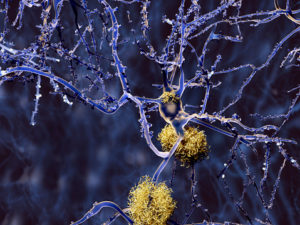Misfolded proteins aggregate in the brain in many neurodegenerative disorders, and animal studies have shown that protein misfolding can be induced. A recent retrospective cohort study examined close to 1.5 million patients who received transfusions in Sweden and Denmark between 1968 and 2012. Approximately 3% of these patients received one or more transfusions from a donor with a neurodegenerative disorder including any type of dementia (1.8%), Parkinson disease (1.0%), Alzheimer disease (0.8%), and amyotrophic lateral sclerosis (ALS, 0.3%). There was no evidence of transfusion-transmission of neurodegenerative disorders. The hazard ratio (HR) for dementia in transfusion recipients from donors with dementia versus donors without dementia was 1.04 (95% CI, 0.99 to 1.09). Similar hazard ratios were estimated for Alzheimer disease (HR, 0.99; [95% CI, 0.85-1.15]) and Parkinson disease (HR, 0.94; [95% CI, 0.78-1.14]). The study was underpowered to draw any conclusions about ALS (n=7). Results of the study are reassuring for transfusion recipients.
Reference:

